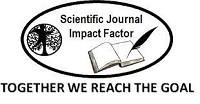Investigating the Effect of Government Spending on the Human Development Index in Simalungun Regency, Indonesia
DOI:
https://doi.org/10.56225/ijassh.v1i4.99Keywords:
government spending, human development index, public policy, Simalungun regencyAbstract
This research aims to analyze the effect of government spending on health, education, and infrastructure on affecting the human development index (HDI) in Simalungun Regency partially and simultaneously. This research uses multiple linear regression analysis models. Sources of data used in the form of secondary data obtained from the publication data of the Central Statistics Indonesia (BPS) and data Regional Development Planning Agency (BAPPEDA) Simalungun Regency with the period 2003-2020. Partially, the variables of government spending in the health, education, and infrastructure sectors have a positive and no significant effect on the human development index in Simalungun Regency. Meanwhile, simultaneously, government spending variables in the health, education, and health sectors have a significant effect on HDI in Simalungun Regency. And then Government spending in the infrastructure sector has the most dominant effect on HDI in Simalungun Regency compared in health and education. The coefficient of determination (R2) explains the variables of the health sector, the education sector, and the infrastructure sector can explain the variation of the HDI variable by 0.750 or 75.0%. While the rest is explained by other variables do not study in this investigation.
References
Asmita, F., & Ruslan, D. (2017). Analysis of factors affecting the human development index in north sumatra province. IOSR Journal of Business and Management, 19(10), 27–36.
Astri, M., Nikensari, S. I., & Kuncara, H. (2013). Pengaruh pengeluaran pemerintah daerah pada sektor pendidikan dan kesehata terhadap indeks pembangunan manusia di Indonesia. Jurnal Pendidikan Ekonomi Dan Bisnis, 1(1), 77–102. https://doi.org/10.21009/JPEB.001.1.5
Craigwell, R., Bynoe, D., & Lowe, S. (2012). The effectiveness of government expenditure on education and health care in the Caribbean. International Journal of Development Issues, 11(1), 4–18. https://doi.org/10.1108/14468951211213831
Damanik, D., Purba, E., & Hutabarat, A. S. (2021). The Effect of Population and Human Development Index on Economic Growth Pematangsiantar City. Budapest International Research and Critics Institute: Humanities and Social Sciences, 4(3), 3658–3668. https://doi.org/10.33258/birci.v4i3.2134
Edeme, R. K. (2014). Analyzing the effects of sectoral public spending on human development in nigeria: evidence from panel data. IOSR Journal of Humanities and Social Science, 19(9), 1–13. https://doi.org/10.9790/0837-19960113
Fattah, S., & Muji, A. (2012). Local government expenditure allocation toward human development index at jeneponto regency, South Sulawesi, Indonesia. IOSR Journal of Humanities and Social Science, 5(6), 40–50.
Fukuda-Parr, S. (2003). The human development paradigm: operationalizing Sen’s ideas on capabilities. Feminist Economics, 9(2–3), 301–317. https://doi.org/10.1080/1354570022000077980
Manuelli, R. E. (2015). Human capital and development. Federal Reserve Bank of St. Louis Review, 97(3), 197–216. https://doi.org/10.20955/r.2015.197-216
Mongan, J. J. S. (2019). Pengaruh Pengeluaran Pemerintah Bidang Pendidikan dan Kesehatan terhadap Indeks Pembangunan Manusia di Indonesia. Jurnal Perbendaharaan, Keuangan Negara Dan Kebijakan Publik, 4(2), 163–176. https://doi.org/10.33105/itrev.v4i2.122
Prasetyo, A. D., & Zuhdi, U. (2013). The government expenditure efficiency towards the human development. Procedia Economics and Finance, 5, 615–622. https://doi.org/10.1016/S2212-5671(13)00072-5
Razmi, M. J., Abbasian, E., & Mohammadi, S. (2012). Investigating the effect of government health expenditure on HDI in Iran. Journal of Knowledge Management, Economics and Information Technology, 2(5), 1–13.
Reguna, F. (2020). Pengaruh Pengeluaran Pemerintah Pada Sektor Pendidikan Dan Sektor Kesehatan Terhadap Indeks Pembangunan Manusia Provinsi Sulawesi Selatan. Program Gelar Sarjana.
Safitri, I. (2016). Pengaruh pengeluaran pemerintah sektor kesehatan, pendidikan, dan infrastruktur terhadap indeks pembangunan manusia di Provinsi Aceh. Jurnal Ilmiah Mahasiswa Ekonomi Pembangunan, 1(1), 66–76.
Sanggelorang, S., Rumate, V., & Siwu, H. (2015). Pengaruh pengeluaran pemerintah di sektor pendidikan dan kesehatan terhadap Indeks Pembangunan Manusia di Sulawesi Utara. Jurnal Berkala Ilmiah Efisiensi, 15(3), 193–208.
Sen, A. (1999). Development as Freedom (First). New York: Random House, Inc.
United Nations Development Programme. (1990). Human Development Report 1990. Oxford University Press for the U.N.D.P.
Wijayanto, A. (2014). Analisis Pengaruh Pengeluaran Kesehatan dan Pendidikan serta PDRB terhadap Indeks Pembangunan Manusia (Studi terhadap Kabupaten/Kota di Jawa Timur). Universitas Brawijaya.
Downloads
Published
How to Cite
Issue
Section
License
Copyright (c) 2022 Authors

This work is licensed under a Creative Commons Attribution 4.0 International License.
Copyright @2022. This is an open-access article distributed under the terms of the Creative Commons Attribution 4.0 International License (https://creativecommons.org/licenses/by/4.0/) which permits unrestricted to copy and redistribute the material in any medium or format, remix, transform, and build upon the material for any purpose, even commercially.

This work is licensed under a Creative Commons Attribution 4.0 International License.















